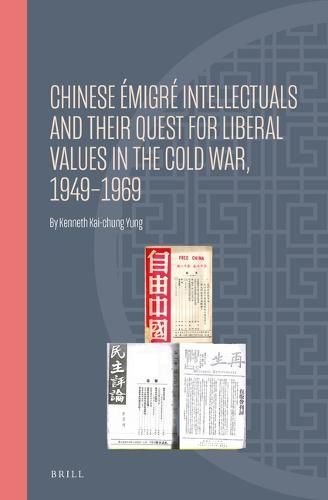Readings Newsletter
Become a Readings Member to make your shopping experience even easier.
Sign in or sign up for free!
You’re not far away from qualifying for FREE standard shipping within Australia
You’ve qualified for FREE standard shipping within Australia
The cart is loading…






By examining the life and thought of self-exiled Chinese intellectuals after 1949 by placing them in the context of the global Cold War, Kenneth Kai-chung Yung argues that Chinese intellectuals living in Hong Kong, Taiwan and overseas Chinese communities in the 1950s could not escape from the global anti-utopian Cold War currents. Each of them responded to such currents quite differently. Yung also examines different models of nation-building advocated by the emigre intellectuals and argues in his book that these emigre intellectuals inherited directly the multifaceted Chinese liberal tradition that was well developed in the Republican era (1911-1949). Contrary to existing literature that focus mostly on the New Confucians or the liberals, this study highlights that moderate socialists cannot be ignored as an important group of Chinese emigre intellectuals in the first two decades of the Cold War era. This book will inspire readers who are concerned about the prospects for democracy in contemporary China by painting a picture of the Chinese self-exiles’ experiences in the 1950s and 1960s.
$9.00 standard shipping within Australia
FREE standard shipping within Australia for orders over $100.00
Express & International shipping calculated at checkout
By examining the life and thought of self-exiled Chinese intellectuals after 1949 by placing them in the context of the global Cold War, Kenneth Kai-chung Yung argues that Chinese intellectuals living in Hong Kong, Taiwan and overseas Chinese communities in the 1950s could not escape from the global anti-utopian Cold War currents. Each of them responded to such currents quite differently. Yung also examines different models of nation-building advocated by the emigre intellectuals and argues in his book that these emigre intellectuals inherited directly the multifaceted Chinese liberal tradition that was well developed in the Republican era (1911-1949). Contrary to existing literature that focus mostly on the New Confucians or the liberals, this study highlights that moderate socialists cannot be ignored as an important group of Chinese emigre intellectuals in the first two decades of the Cold War era. This book will inspire readers who are concerned about the prospects for democracy in contemporary China by painting a picture of the Chinese self-exiles’ experiences in the 1950s and 1960s.